11 Mar Adelaide – 2017
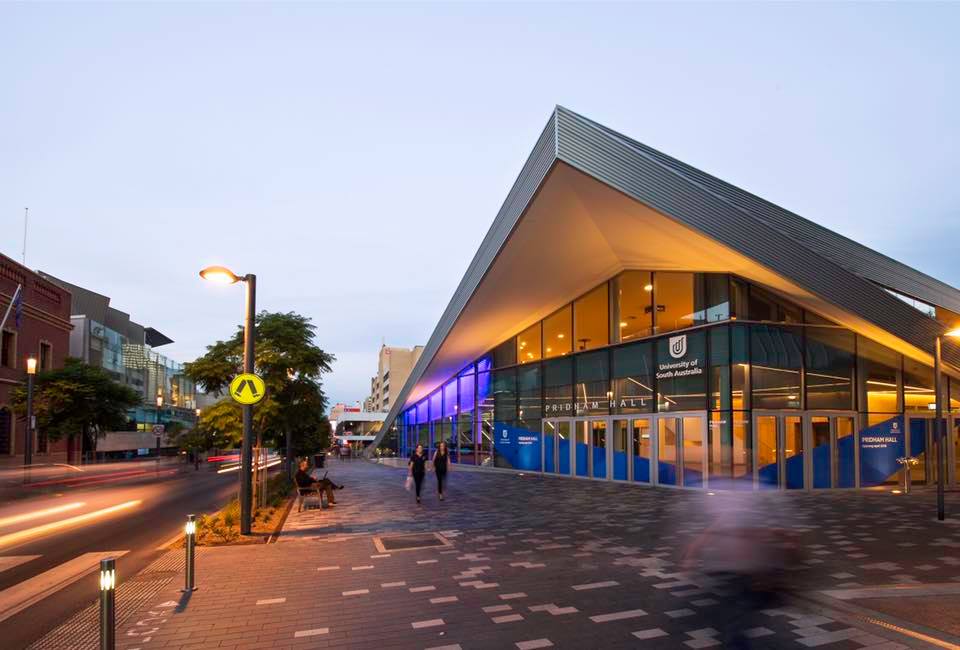
The African Studies Association of Australasia and the Pacific (AFSAAP) is a network of academics, students, consultants, activists, diplomats, artists, community leaders, and others who share a mutual interest in the promotion of African Studies in Australasia and the Pacific region. AFSAAP was founded in 1978 and this will be the association’s 40th Annual Conference. This conference aims to examine the future of African Studies in Australia and New Zealand, and discuss the possible ways forward. The direction of this discussion will be led by your research proposals showcasing African Studies in Australasia.
Conference Theme
“Researching Africa in Australasia – The Way Forward!”
AFSAAP The African Studies Association of Australasia and the Pacific
See FULL PROGRAM including ABSTRACTS (last updated 21/11/2017)
The African Studies Association of Australasia and the Pacific (AFSAAP) is a network of academics, students, consultants, activists, diplomats, artists, community leaders, and others who share a mutual interest in the promotion of African Studies in Australasia and the Pacific region. AFSAAP was founded in 1978 and this will be the association’s 40th Annual Conference. This conference aims to examine the future of African Studies in Australia and New Zealand, and discuss the possible ways forward. The direction of this discussion will be led by your research proposals showcasing African Studies in Australasia.
About The Conference Venues
This year we will celebrate AFSAAP’s 40th Annual Conference by gathering on the first day at the University of South Australia’s City Campus, and then on the 2nd day of the conference we will all gather at Monarto Zoo’s Waterhole Function Centre situated on the edge of the Africa precinct – that is, Australia’s conservation site re-creating the wild African Serengeti with stunning views of Monarto Zoo’s African animals, including a Giraffe viewing platform a few minutes walk from the venue. Buses will transport conference participants to and from this venue, located 50 minutes from the Adelaide CBD.
Participants will need to book their own accommodation in the centre of Adelaide – some accommodation suggestions listed below.
Presenters will be expected to prepare final papers for inclusion in the Final Conference Proceedings.
Thankyou.
Dr. Tanya Lyons, Dr. Ibrahima Diallo and Dr. Clare Buswell
The AFSAAP Conference Team.
Major Sponsors:

Abstracts 2017
Fully peer reviewed and accepted abstracts for the 2017 AFSAAP Conference – see FULL PROGRAM
Key Note Speakers
Peter Limb – “Taking African Cartoons Seriously: Politics, Satire & Culture”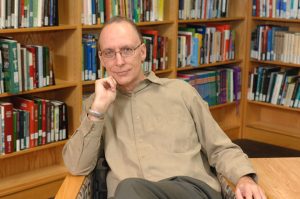 Peter Limb is a member of the Australasian Review of African Studies Board, recently retired from Michigan State University where he was Africana Bibliographer, Associate Professor (adjunct) in African History, and University Distinguished Faculty. He received his Ph.D. at the University of Western Australia, where he co-organised the 1999 AFSAAP conference with Cherry Gertzel. He has published widely on African history, journalism, digitization, archives and ethics, as well as Australian/New Zealand anti-apartheid movements. His books include: The People’s Paper: A Centenary History & Anthology of Abantu-Batho (Johannesburg, 2012), Autobiography & Selected Works of A.B. Xuma (Cape Town, 2012), A Shared History: The ALP, the ANC & the Australian Anti-Apartheid Movement (Canberra, 2012), The ANC’s Early Years (Pretoria, 2010), Grappling with the Beast: Indigenous South(ern) African Responses to Colonialism, 1840–1930 (Leiden, 2010) and Nelson Mandela (Westport, 2008). Until recently, he served on the Herskovits Award committee for the best book in African studies, co-chaired the Association of Concerned African Scholars and coordinated the African Activist Archives. He serves on editorial boards including the Oxford Online Encyclopedia of African History. Current research includes books on black politics in the Free State and African cartooning. Dr. Limb is also a Research Fellow at the African Studies Centre, University of the Free State. He co-hosts the popular scholarly podcast series ‘Africa Past & Present’ (afripod.aodl.org) of over 110 episodes with leading Africanists across the disciplines, which has also featured African cartoonists. At MSU he developed one of the world’s largest collections of African comic art.
Peter Limb is a member of the Australasian Review of African Studies Board, recently retired from Michigan State University where he was Africana Bibliographer, Associate Professor (adjunct) in African History, and University Distinguished Faculty. He received his Ph.D. at the University of Western Australia, where he co-organised the 1999 AFSAAP conference with Cherry Gertzel. He has published widely on African history, journalism, digitization, archives and ethics, as well as Australian/New Zealand anti-apartheid movements. His books include: The People’s Paper: A Centenary History & Anthology of Abantu-Batho (Johannesburg, 2012), Autobiography & Selected Works of A.B. Xuma (Cape Town, 2012), A Shared History: The ALP, the ANC & the Australian Anti-Apartheid Movement (Canberra, 2012), The ANC’s Early Years (Pretoria, 2010), Grappling with the Beast: Indigenous South(ern) African Responses to Colonialism, 1840–1930 (Leiden, 2010) and Nelson Mandela (Westport, 2008). Until recently, he served on the Herskovits Award committee for the best book in African studies, co-chaired the Association of Concerned African Scholars and coordinated the African Activist Archives. He serves on editorial boards including the Oxford Online Encyclopedia of African History. Current research includes books on black politics in the Free State and African cartooning. Dr. Limb is also a Research Fellow at the African Studies Centre, University of the Free State. He co-hosts the popular scholarly podcast series ‘Africa Past & Present’ (afripod.aodl.org) of over 110 episodes with leading Africanists across the disciplines, which has also featured African cartoonists. At MSU he developed one of the world’s largest collections of African comic art.
Dorothy Driver “‘White Woman Listen!’; ‘Look! Don’t you see! We are the people who have the strength to build a new world!’: Writing and Reading Fiction for an Emerging South African Feminism.”
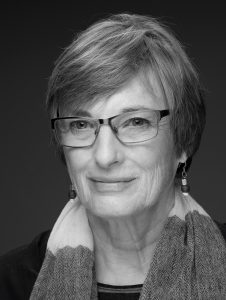
Dorothy Driver was born in South Africa and now resides in Australia. She has recently retired as Professor of English from University of Adelaide, where she continues in an honorary research position. She is also Professor Emeritus at University of Cape Town, where she taught for twenty years, and has held visiting teaching positions at University of Chicago and Stanford University. Her major research interests have been in the constructions and representations of gender and race both under Apartheid and after Apartheid, and in writing by women. She has published on various South African writers as well as on topics such as the South African Truth and Reconciliation Commission, Drum magazine and gender, South African short fiction in a modernist tradition, and the African National Congress constitutional guidelines. For twenty years she produced for Journal of Commonwealth Literature an annual survey and bibliography of South Africa’s English-language literary work. She has also edited and co-edited a number of books, among them the historical anthology Women Writing Africa: the Southern Region, and, most recently, a new edition of Olive Schreiner’s From Man to Man or Perhaps Only.
Dr. Joseph Masika OAM
Member: South Australia Multicultural and Ethnic Affairs Commission
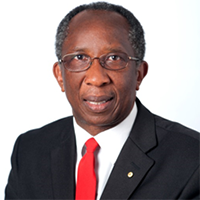
Dr. Joseph Masika has nearly 30 years of community service and has directly contributed to the empowerment and development of women, men and young people in South Australia and overseas. He is a highly qualified Doctor of Medicine, holding a Masters of Public Health, the National Certificate in Environmental Health, the Certificate in Management and Leadership and a Post Graduate Certificate in Australian Migration Laws and Practice. Since arriving here in 1996 from Tanzania he has worked to improve the community by supporting South Australians, through tireless volunteering with charities and other groups across South Australia and advocating for vulnerable, disadvantaged groups where he gained a reputation as someone who gets things done. He is a member of the South Australian Multicultural and Ethnic Affairs Commission, White Ribbon Ambassador and also a member of the Commonwealth Ministerial Consultative Committee on Africa. His work for communities has been recognised with community service awards, including the Medal of the Order of Australia (OAM) and the South Australia Governor’s Multicultural Awards Outstanding Individual Achievement.
Accommodation
Accommodation in Adelaide Conference participants are required to organise their own accommodation for the conference – anywhere in Adelaide CBD would be suitable – keeping in mind that it takes about half an hour to walk from South Terrace or East Terrace to the North Terrace venue (down the West End of the City). On the second day of the conference Buses will collect and drop off all conference participants from outside the Oaks Embassy 96 North Terrace, Adelaide City. This hotel is located only 300 metres approx from the Conference VenueSuggested Hotel Located near the Conference Venue –Oaks Horizons and Oaks Embassy have provided a discount for AFSAAP Conference Attendees.Click on this link below to review availability and costs. Use “AFSAAP” for the code to receive the discount.
Getting there and about Adelaide
Conference Venue – Barbara Hanrahan Building, UNISA City West Campus – located in the block between Hindley St, Finn Place, North Terrace and Morphett Street. Registration desk will be open from 8.30am – 5pm on Thursday November 23rd outside room 4.23, (level 4). See this PDF map for the location – City West Campus Site Plan.Also See southaustralia.com and cityofadelaide.com.au for further information.Air Travel to South AustraliaAdelaide is South Australia’s capital city. It is easily accessed by air from all Australian capital cities and international destinations. Adelaide Airport is only 8 kilometres from the centre of the city, a 15-minute drive.Adelaide Airport (ADL) services regional, domestic and international travellers. The state of the art facility is the newest and most efficient aviation terminal in Australia, incorporating the latest in design and technology.
Qantas Airways, Virgin Australia and Jetstar offer frequent daily services to Adelaide Airport from Australia’s capital cities.
Domestic flight times (direct) are:
Melbourne – Adelaide: 1 hour 5 minutes
Sydney – Adelaide: 1 hour 40 minutes
Canberra – Adelaide: 1 hour 40 minutes
Brisbane – Adelaide: 2 hours 30 minutes
Perth – Adelaide: 3 hours 10 minutes
Darwin – Adelaide: 3 hours 35 minutes
Alice Springs – Adelaide: 2 hours
Airport Transfers
Door-to-door 7 day service. Reservation is appreciated at least 48 hours prior to travel.
Office hours 0700 – 2100, 7 days a week.
Phone 1300 856 444 or +61 8 8389 3528
Fax +61 8 8389 3572
Web: www.adelaideairportflyer.com
Email:info@adelaideairportflyer.com
Taxis
A new taxi rank is located left of the pedestrian plaza as you walk out of the airport terminal. Concierges provide a safe environment and allocate taxis to passengers. There is a $2 levy added to fares for taxis leaving the airport.
Visas to Australia
International visitors to Australia require a visa or an electronic travel authority. It is your responsibility to ensure documentation is correct and completed before you start your journey. Information on obtaining visas and ETA’s (Electronic Travel Authorities) can be found on the Department of Immigration & Multicultural & Indigenous Affairs web site – www.immi.gov.au
AFSAAP Participants please NOTE – it can take a long time to organise visas from some African countries so please begin the process soon.
Public transport
Trams runs from Glenelg through the city via North Terrace where it passes the Adelaide Convention Centre, with a stop just in front of the Railway Station. located less than a minutes’ walk from venue. Travel between South Terrace and the Entertainment Centre is free with no ticket required. The trams run approximately every 10-15 minutes. The historic Adelaide Railway Station is located a 2 minute walk from the ACC. For more information please visit: www.adelaidemetro.com.au
The free City Connector bus is an easy way of navigating around Adelaide, look out for bus 98C or 98A. Adelaide is great tour by bike as well. The ACC is a designated pick up and drop off point for Adelaide Free Bikes – an initiative run by the Adelaide City Council.
Visitor Information Centre
There are various Visitor Information Centres throughout Adelaide. Closest to the ACC is on one on James Place just off Rundle Mall and opposite the Myer Centre.
James Place (off Rundle Mall)
Phone: 1300 588 140
Email: visitor@adelaidecitycouncil.com
Open: Monday to Friday 9am to 5pm
Saturday and Sunday 10am to 4pm
Public holidays (except Christmas Day and Good Friday) 11am to 3pm.
For general information on Adelaide and South Australia, call the South Australian Visitor Information Line (Monday to Friday)- Phone: 1300 655 276 (within Australia only)
About Adelaide
Vibrant Adelaide is globally renowned for its innovation, world class facilities, ease, value, safe clean surrounds and superb climate.
Adelaide is a city that offers the physical and emotional space to breathe. There is a sense of freedom here – of expression, of movement, of thought. It is not only the gateway to some of Australia’s best wine country, the city centre is surrounded by parklands and is a blend of historic buildings, wide streets, parklands, cafes and restaurants.
Adelaide has rolling hills to the east and beaches to the west. With a population of slightly more than one million, Adelaide is the “20 minute city”. The airport is only seven kilometres from Adelaide city. The Adelaide Hills and major beaches are less than half an hour away by car. That’s what we call liveable.
Emergency numbers
Fire, Ambulance Police – dial 000 (or try 112 from your mobile phone)
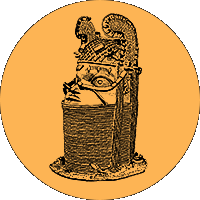
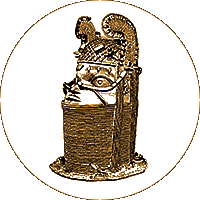
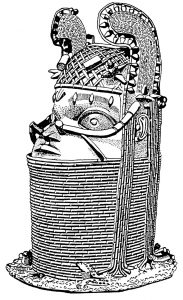
No Comments